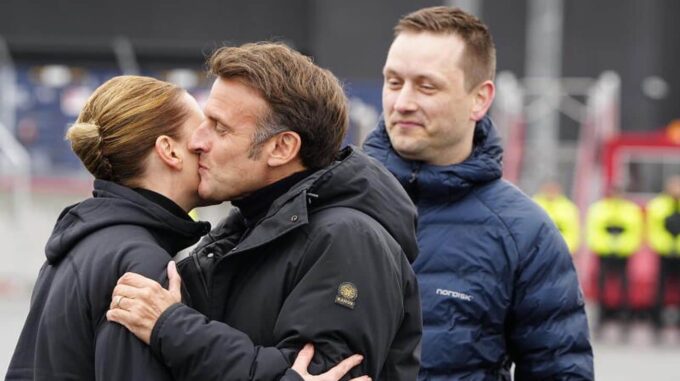Global Intrigue Surrounding Greenland: Macron’s Surprising Visit Sparks Reflection on a New Energy and Strategic Arena

In an unexpected and historic move, French President Emmanuel Macron arrived in Greenland on Sunday, making it the first such visit in many years and highlighting the island’s importance in the contemporary geopolitical landscape. This visit served as a vivid reminder that Greenland, a fair-haired Arctic island traditionally part of Denmark, is transforming into a key political and strategic foothold for leading world powers. Upon arrival in the island’s capital, Nuuk, Macron was accompanied by Danish Prime Minister Mette Frederiksen. They held scheduled talks with the Greenlandic government. Besides official discussions on security in the Arctic and Northern regions, the meeting focused on climate change challenges, energy development prospects, and access to unique mineral resources—particularly rare earth elements and other critically important materials increasingly in demand worldwide. Local residents gathered at the scene near the airport to warmly welcome the guest: about a hundred people, some holding Greenlandic flags, symbolizing their desire for recognition of the island’s special status and potential future changes. After arriving, Macron briefly shared his vision for the mission, emphasizing that his visit aimed to deliver a “message of solidarity, support, and friendship” to the local population, and underscoring the importance of cooperation in addressing global issues. “We are here not merely for diplomatic formalities but to discuss our shared future in this vital region, especially considering the challenges of climate change and security,” he told journalists. This mission has strategic significance, as Macron is the first foreign leader to visit Greenland since the United States openly announced its intentions to bolster its presence in this Arctic region for national security reasons. The U.S. declared plans to solidify control over the island, which caused quite a wave of reactions. However, such initiatives faced resistance among Greenlanders and even within the American public, as internationally, Greenland is considered part of Denmark, although it has the right to initiate a referendum on independence. On the agenda are discussions about upcoming challenges in Arctic waters, growing resource competition, and security issues in the North Atlantic. Attention is also given to global climate change—melting ice shelves opening new opportunities for navigation and natural resource exploration. It appears that Greenland is becoming one of the hottest points in today’s global politics. International experts and analysts warn that this Arctic region—once relatively unknown to the general public—is now turning into a strategic magnet for the world’s major states seeking access to its resources, control of maritime routes, and influence in future global competition. The key question remains: how long will Greenland stay under Denmark’s influence, and can it maintain its aspirations for independence, which naturally arise amid rising interest in its strategic importance? American and European policymakers are already closely analyzing this new dynamic, as every move in the region can significantly impact the balance of power in global politics. One thing is clear: today, Greenland is not just frozen land in the northern latitudes but a center of new conflicts and opportunities that could shape the rules of the game for years to come. Within this context, Macron’s visit signals that Europe is not disengaging from the Arctic but actively strengthening its positions—aiming to preserve the balance of power and ensure stability in this distant yet critically important part of the Earth for global security and energy concerns.

